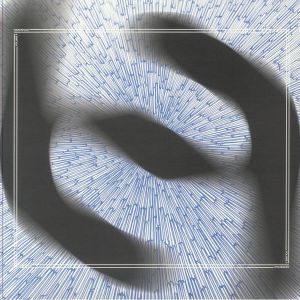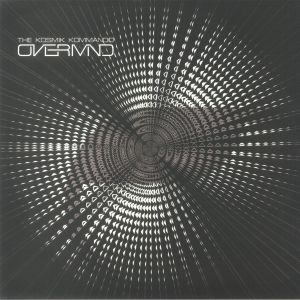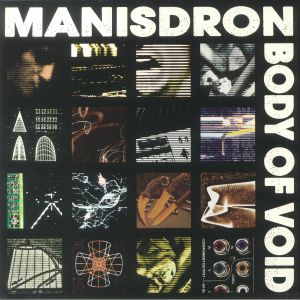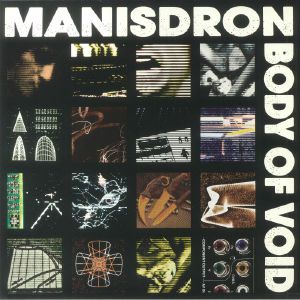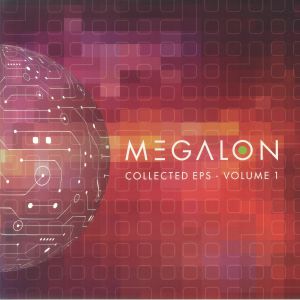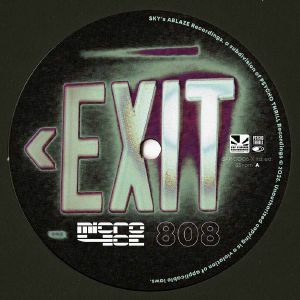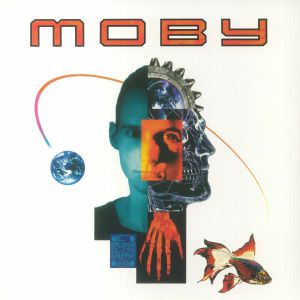Back catalogue: Techno (All)
Juno's full catalogue of Techno (All)
专辑
Berlin Atonal Vol 3 (gatefold 3xLP)
Cat: ATONAL 001. Rel: 26 Aug 15
Review: Berlin Atonal returned two years ago from a long hiatus, 23 years to be exact. After three tremendous festivals this decade, they now present us with their first recordings since 1984. These particular ones from the 2014 edition. Cabaret Voltaire (in this incarnation featuring only Richard H Kirk) was a true highlight and contributes "Microscopic Flesh Fragment" and "Universal Energy". One half of Demdike Stare Miles Whitaker went solo, presenting his truly unique take on techno, and the slow burning attitude of "Vagabond No. 7" is evidence of this. New Zealand's Fis also appears; rather uncategorisable as always on "Dist CL (Atonal Version)." On the third disc we have Northern Electronics main man and modern auteur Abdulla Rashim presenting two commissions from his captivating atmospheric set that year. Limited to 700 copies.
… Read morePlayed by: Juno Recommends Techno, Kastil (Soul Notes/Stale)
in stock $53.25
Cat: SWORD 03LP. Rel: 05 Jun 25
Review: This new collaboration between Swedish producer Civilistjavel! and Lebanese artist Mayssa Jallad is both a conceptual inversion and a sonic ghost of Jallad's original record. Refracting material from her Beirut-focused album through sparse dub techno, Civilistjavel! transforms narrative-rich compositions into abstract, often beatless forms where Mayssa's voice floats disembodied in a fog of delay and reverb. Tracks like 'Baynana (Version)' and 'Holiday Inn (March 21 to 29) (Version)' feel haunted by memory, with structure hinted at but rarely resolved. It's a remarkable shift in context, but one that remains emotionally aligned. Civilistjavel!'s production avoids spectacle in favour of slow erosionivocal fragments hover, dissolve, re-emerge. Even more rhythmic moments like 'Kharita (Dub)' maintain an eerie restraint, built on slippery grooves and shimmering decay. Both artists are working far from their geographic homesiMayssa in Boston, Tomas in Uppsalaibut the result sounds uncannily unified. It's a record that holds grief and beauty in the same hand, illuminating the quiet force of Mayssa's voice and Civilistjavel!'s deft minimalism. Not so much a remix album as a parallel reality: austere, spectral, and deeply moving.
… Read more in stock $22.26
Hardspace Volume Four (transluscent blue vinyl 2xLP)
Cat: H 004. Rel: 15 Oct 24
Review: Released on lovely transparent blue vinyl, the fourth volume of Figure's Hardspace series offers six fresh reinterpretations of Len Faki's favourite tracks under his staunchly underground Hardspace alias. Josh Wink's 'Sixth Sense' gets a powerful low-end rework while Aoki Takamasa's minimalist dub transforms into a high-energy and peak-time slammer. DJ Yoav B's iconic 'Energize' reaches new rave heights with its relentless groove and Huxley's dark take on 'Weapon 3' comes on with explosive force. Tuttle's 'Function' ups the intensity with Faki's signature claps and sirens while Mike Parker's '90s classic 'Shakuhachi Two' gains extra drive with Hardspace's propulsive percussion for a dynamic techno workout.
… Read more in stock $32.96
in stock $28.73
Review: Brighton based producer Richard Smith aka L/F/D/M who first emerged in 2013, inaugurating the Optimo Trax series with the Purple Maps EP before going on to release two EP's of hardware-driven atonal techno on Powell's Diagonal Records makes his bow on Cititrax "Dream Bleeds". Overflowing with body jerking industrial, raw acid/techno, the album hints of the warehouse sound of the late '90s and the caustic spirit of EBM. From opener "Cru" to "One Terminal", the eight tracks thread together; each starting point completely open, each new step informed by the last, shaped by emotion, inspiration and time.
… Read morein stock $17.55
Review: Maceo Plex has managed to pivot this alias from accessible house cuts with creamy basslines into a far more interesting project that explores astral techno with a range of different influences from sci-fi to wave to the sounds of the 80s. That has never been better exemplified than on '93, his expansive album on his Lone Romantic label. It features emo-anthems like 'Revision', disco-techno stompers like 'Go Back' and chunky robot-tech like 'All Night'. Plenty of guests from Mystic Bill to label mate AVNU Jane's Addiction frontman and alternative music legend Perry Farrell all help add a wide world of sound to the electronic core.
… Read morePlayed by: Juno Recommends Minimal Tech
in stock $35.49
in stock $24.23
in stock $17.47
The Lion & The Ram (180 gram vinyl 2xLP + MP3 download code)
Cat: TRESOR 341. Rel: 28 Sep 22
in stock $26.76
Review: Maelstrom returns to Central Processing Unit for his fourth outing, and this time he's dropping his longest release yet. French electro mainstay Joan-Mael Peneau, known to many as Maelstrom, has been a fixture on the scene since the early 2000s, and he brings every ounce of that experience to his new LP, The FM Tapes. Spanning 11 tracks, this album is a masterclass in precision, confidence, and control. From the opening moments of 'Ondes Courtes', Maelstrom makes it clear that he's not here to mess around. The track offers a dark, brooding take on electro, with tight, shuffling beats and expertly layered synth work that sets the tone for what's to come. Tracks like 'Alt50ser' follow, pushing forward with mechanical rhythms and a frenetic energy that could only come from an artist with such a seasoned hand. 'La Vie Sociale Des Sons' showcases his knack for combining complex soundscapes with raw, dancefloor-ready energy, blending heavy basslines with shimmering top-end details. The album's centrepiece, 'Res 06 (feat. Fasme)', serves as a standout, bringing in an almost cinematic quality. The beats remain hard and driving, but there's a subtle elegance in the way Maelstrom weaves textures around them, creating something that feels both intense and intricate. Yet, despite all the technical wizardry, The FM Tapes never feels cold or clinical. There's a warmth to tracks like 'My Digitone', where the rhythms are precise but still leave room for playfulness and experimentation. It's this balance of meticulous craftsmanship and spontaneous energy that defines the LP and makes it feel so vital.
… Read morePlayed by: Juno Recommends Electro
in stock $18.02
Review: 'Connection' feels more direct in emotion than some of The Maghreban's early works, sonically encapsulating an up-close and personal feel that reflects the personal qualities of the artist (Ayman Rostom), and his East African and Middle Eastern roots, more than anything else. I was becoming more comfortable with connection whilst making it, rather than keeping to myself.More driven by drum-machine loops, and the cinematic mysteries one can fit around it, it's also got features from rapper Nah Eeto and singer Abdullah Miniawy, painting a smokey, dark and modal-jazzy picture of (a haunted) house.
… Read more in stock $14.09
Cat: CHN 008. Rel: 15 Feb 23
in stock $41.97
in stock $17.75
in stock $27.33
in stock $29.58
Body Of Void (B-STOCK) (2xLP)
Cat: LIES 183 (B-STOCK). Rel: 01 Jan 90
B-STOCK: Sleeve damaged but otherwise in excellent condition
in stock $20.85
In Thy Domain (gatefold 180 gram vinyl 2xLP)
Cat: COUNTER 035. Rel: 15 Jun 23
in stock $36.90
Review: Steve Marie's debut album on Libertine Industries is part of a new series from the label that aims to shine a light on fast rising talents. It's a cross-genre mashup of acid, new beat, techno, electro, wave and more, with a thrilling sense of forward motion and plenty of haunted atmospheres. 'That's The Way' opens with old school baselines and sci-fi vocals setting the strobe-lit scene. 'The Worth' is then a hard hitting jam built on sark metallic drums and with real urgency in its bones. Amongst other highlights, 'Stress Valley' really drills deep and makes you jerk your body in multiple directions at once.
… Read morePlayed by: Wes Baggaley
in stock $30.99
in stock $60.01
Played by: Wes Baggaley
in stock $25.35
Review: On his long-awaited debut, Osaka's Takuya Matsumoto draws a clear line between the tactile futurism of 90s IDM and the emotional depth of Detroit techno, finding beauty in grit and structure in chaos. There's a cinematic quality to the sequencing, from the shimmering opener 'Drifting On The Ocean' to the gnarled syncopations of 'Dril and Acid' and the broken funk of 'Fonseca'. But what makes this record truly sing is its refusal to sit still: 'Mini' dances with jazzy irreverence, while 'Triangles' feels like a dusted-off memory from a lost Rephlex archive. Matsumoto's palette is warm, spiky, and full of movementian album built not on pastiche but on devotion to groove and experimentation in equal measure. You hear shades of Underground Resistance's urgency, Mike Paradinas' off-grid detail, and Floating Points' melodic intricacy, but none of it feels borrowed. 'Traverse' and 'Mercy on the floor' close things with a spacious melancholy that lingers beyond the final fade. This is a conversation with dance music history, spoken fluently in rhythm and mood. A richly detailed, deeply personal statement from one of Japan's most quietly consistent producers.
… Read morePlayed by: Bryan Hervieu
in stock $26.76
Enchanted By The Muse (limited trancslucent magenta vinyl LP)
Cat: VEYL 041. Rel: 30 Jul 24
Review: Italian-born, Berlin-based. These details alone are enough to mark Velvet May out as a product of location. Italy has long-been obsessed with a distorted futurism, musically at least, with a slew of hugely respected noise pioneers calling the country home, particularly in northern areas around Torino. Meanwhile, Germany's capital is all about those dystopian aesthetics and technophile attitude. Fusing together industrial, rock, and electronic in a visceral, mechanical, human-trapped-in-machine amalgamation of sound, the grit of production lines meets the unbridled raw energy of punk, the sex droid seduction of electroclash steaming headfirst into the forward momentum of techno. It's angry, frustrated, perhaps even desperate, voices calling out from behind wires and controllers. Yet, in other moments ('Haven of Thrill', for example) it's positively life-affirming and, dare it be said, owes something to the euphoria of rave.
… Read more in stock $25.35
The Floor Is Lava (2xLP + MP3 download code)
Cat: KOMPAKT 499. Rel: 29 Oct 24
Review: Michael Mayer's fourth album, The Floor Is Lava, arrives after an eight-year wait, following his collaborative & album on !K7. Mayer's solo output has always been selective, with each release feeling like a significant moment. His previous albums, Mantasy and Touch, were similarly spaced out, but with good reason. As the head of Kompakt and Imara, a globe-trotting DJ, and a highly sought-after remixer, Mayer wears many hats, and it's no surprise his own productions are more sporadic. Yet, this also ensures quality. His name on a record sleeve signals music that's both forward-thinking and rooted in the past, deftly balancing the demands of the dancefloor and more reflective listening. The Floor Is Lava showcases Mayer's talent for threading together genres and eras while keeping a distinct sense of purpose. Whether it's designed for late-night clubs or a contemplative listen at home, Mayer's sound continues to evolve, pushing boundaries while remaining firmly anchored in his established style. As always, his knack for combining the exploratory with the functional shines through, and this latest offering is no exception.
… Read morePlayed by: Juno Recommends Minimal Tech
in stock $20.93
Played by: Juno Recommends Drum & Bass
in stock $16.33
in stock $26.76
Review: Laggy Panteli and Zeno Messis (aka Megalon) were cult techno artists back in the mid-nineties. They released seminal albums like 1994's Pandora's Box and mixed up ambient, Detroit techno, electro, European electronics and their own experiences of London's acid house scene. The good folks at Above Board have been digging in the duo's vaults and put together this collection of all of their best EPs across four crucial sides of vinyl. This is deep, atmospheric techno for the small hours with the likes of skittish rhythmic workout 'Sorcerer' (Funky Magus mix) sitting next to the widescreen acid styles of 'Semblance' (Dim B) and the shimmering leads of future tribal cut 'Transition'.
… Read morePlayed by: DJ Mau Mau, Marcelo Tavares(Deep Space Podcast)
in stock $36.61
in stock $27.61
in stock $22.26
Review: Ben Klock's label signs up Stef Mendesidis for an ambitious double 12" here that offers up eight superbly designed techno weapons. The open wastes no time locking you into some bulky and muscular groves with driving drums and smart dub chords peeling off the rhythm. There is an absorbing haunting vibe to 'Axial Force' with its smoky, ghostly pads and long-tailed chords while the closer 'The Dance Class' has an unsettling sense of urgency and paranoia in the tightly woven bell melodies and unrelenting drum funk. These are precision-tooled bombs for techno connoisseurs.
… Read morePlayed by: DJ Bone
in stock $25.35
in stock $39.43
Exit 808 (pink black white & grey vinyl 2xLP)
Cat: SAR 0006XY. Rel: 19 May 25
Review: Detroit electro investigator MICRO4CE delivers a no-compromise double pack here across two EPs packed with nine tracks of raw electronic futurism and imaging. It is all rooted in classic Detroit electro and so-called hi-tech-funk so the sound channels early 80s influences like Nucleus and Mantronix while carving out its own cyborg-driven edge. 'Bass Situation 313' gets underway with swampy low ends and far-sighted chords then the likes of 'Borg Fightz' bring unrelenting coruscated drums and 'The Greed' is a more minimal sound with zippy synths and dehumanised vocals. This is seriously high-grade electro for heads who like gritty, futuristic and fearless sounds.
… Read morePlayed by: Juno Recommends Electro
in stock $31.83
Landscape
In My Dreams
Princess Of Light
Fable (Dream version)
In The Dawn
Children
Red Zone
in stock $26.76
Review: Milio's third album on Atomnation marks a significant artistic evolution for the Dutch producer, who has harnessed new production techniques to translate his childhood fantasies into music. Utilising mostly analogue sounds, recorded percussion, and his own voice, the artist crafts a rich auditory experience that again showcases his suburb synth work as it explores the space between the surreal and the real, featuring tracks like the melodically gorgeous 'Day in Night,' the lithe and dubby rhythms of 'Confuse Me,' and the broken beat beauty of 'Sleeping.' Each piece offers a unique blend of emotional depth and vivid soundscaping that takes you to a world away from here.
… Read morePlayed by: Marcelo Tavares(Deep Space Podcast)
in stock $29.02
The Trip: Enter The Black Hole (Japanese Edition) (limited 2xLP + insert with obi-strip)
Cat: PINC 1234. Rel: 13 Jun 24
in stock $80.56
The Trip: Enter The Black Hole (Japanese Edition) (B-STOCK) (limited 2xLP + insert with obi-strip)
Cat: PINC 1234 (B-STOCK). Rel: 01 Jan 90
B-STOCK: Creasing to corner of outer sleeve but otherwise in excellent condition
in stock $56.34
Review: Berlin-based artist Pavel Milyakov collaborates with Yana Pavlova, Martyna Basta, Richie Culver and Torus on Enthropic Vision, an album-length collection of tracks spanning diverse genres. The A-side starts with the melancholic ambience of 'Moon Chant', featuring the ethereal vocals of Krakow experimental music scene veteran Martyna Basta, before 'Tesco' brings bleak trancey loops blended with British contemporary artist Richie Culver's spoken word poetry. 'Eternal Break', with Netherlands-based artist Torus, is all low subs, ecstatic pads and abrasive breaks, then the B-side kicks in with 'Gabba 17' - not a 170bpm gabba anthem, but rather a ghostly techno workout with an admittedly urgent 4/4 kick - and continues with another tune featuring Richie Culver's spoken word fused with breaks. The album closes with the grim beauty of 'The Thrill', recorded in collaboration with Ukrainian singer Yana Pavlova and transports more wised up listeners back to the hypnagogic universe of the duo's 2021 Blue LP.
… Read more in stock $15.77
Review: Released in the first year of the pandemic, Ela Minus' first major breakthrough came in 2020, when Domino put out her debut record, Acts of Rebellion. Evidently the label was happy with the results, which saw the young Colombian electronic star carve out a corner of the global scene for herself. Five years on and we're back with the follow up. Reassuringly, everything and nothing has changed. Improvised jazz meets techno meets schoolyard Brat pop, trance, EDM and synth. Citing Kraftwerk as one of her key influences, you can also hear plenty of Daft Punk in here, and a little Charli XCX to boot. All of which might sound a little opportunistic, if she didn't radiate authenticity and already have a decade-long history of putting out futuristic and fun beats.
… Read more in stock $25.35
Dia (limited red bio vinyl LP + MP3 download code (indie exclusive))
Cat: WIGLP 504X. Rel: 16 Jan 25
Review: Colombian producer and singer Ela Minus expands her sound on this new album, which is a bold follow-up to her 2020 debut Acts of Rebellion. While her first long player felt like an intimate late-night club reverie, this sophomore effort is introspective yet vast while revealing more of Ela as both an artist and person. It's an album about becoming and exploring self-discovery, resilience and the path forward after breaking. Across ten terrific tracks that have been mixed by Marta Salogni and mastered by Heba Kadry, Ela blends pop accessibility with experimental finesse while weaving radiant choruses into imaginative, intricate sonics. A great work that shows evolution while not abandoning her signature sounds.
… Read more in stock $27.03
in stock $30.99
in stock $36.61
in stock $30.14
in stock $19.71
Review: Given the hype that surrounded the release of the first Moderat set back in 2009, we can surely expect more of the same for this second outing from Apparat and Modeselektor. Those familiar with the first album's woozy blend of IDM, Thom Yorke indebted vocal dreaminess, porchlight techno and post-dubstep rhythms will immediately feel right at home. Online reviews have focused largely on II's atmospheric warmth, and the way in which the Berlin-based trio seems to have refined their sound. Both are valid critiques; certainly, there's a maturity and musical complexity to the album that betters much of their previous works. It's not much of a dancefloor set, but that's entirely the point; this is locked-in headphone listening for the wide-eyed generation.
… Read more in stock $23.09
Review: Given the hype that surrounded the release of the first Moderat set back in 2009, we can surely expect more of the same for this second outing from Apparat and Modeselektor. Those familiar with the first album's woozy blend of IDM, Thom Yorke indebted vocal dreaminess, porchlight techno and post-dubstep rhythms will immediately feel right at home. Online reviews have focused largely on II's atmospheric warmth, and the way in which the Berlin-based trio seems to have refined their sound. Both are valid critiques; certainly, there's a maturity and musical complexity to the album that betters much of their previous works. It's not much of a dancefloor set, but that's entirely the point; this is locked-in headphone listening for the wide-eyed generation.
… Read morePlayed by: Toki Fuko
in stock $17.19
Review: Moderna's arresting debut album on her own Brave New Rave has been in the works for seven years and was written across sessions in Berlin and Mexico City. It is an exploration of Berlin's influence on techno, dark disco and queer culture that takes in a diverse array of influences and inspirations from the music of Prince to a collaboration with post-punk artist Skelesys via electro, dark wave and more. The tracks are all raw, dancefloor-focussed cuts with rugged basslines, layered and well-treated vocals and a futuristic sense of sound that draws you in deep and keeps you locked.
… Read more in stock $21.40
in stock $28.45
in stock $23.95
Review: Monolake's defining third LP Gravity was the second album to be released through the artist's own Imbalance Computer Music, as well as the first to feature Robert Henke predominately, as his former partner Gerhard Behles became increasingly consumed by the foundations of what become the Abelton Live empire. Tense, percussive digital minimal techno ensues, setting steady beats against rattling, materially modelled sound design - the record's resonant overtones sound like sprockets undergoing tidal to-and-fros of suspension and release - this record sought thematic refuge in a universal force of natural law: gravity itself. After a recent reissue of Monolake's first album Hongkong, this turn-of-the-century affair - appearing on vinyl for the very first time - offers a shattered, breathy brand of minimalism, perfect for shrunken heads and demanding DJs alike.
… Read more in stock $38.87
Analog Fluids Of Sonic Black Holes (limited grey vinyl LP)
Cat: LPDG 190X. Rel: 06 Nov 19
Review: If you think that "Analog Fluids of Sonic Black Holes" is a poetic title for Carmae Ayewa's fourth album as Moor Mother, just wait until you hear her spoken word lyrics. She's an artist with a very singular vision, both lyrically and musically, and it's this that makes the album such an absorbing listen. Her subject matter is personal, political, social and cultural, and the music backing it - a forthright, experimental, densely layered mixture of discordant jazz samples, dark ambient chords, intense noise, industrial strength machine beats and growling, Nine Inch Nails style raw alternative rock sounds - is pushed to the limits to emphasize the strength of her message. It's an intense trip, but one that's well worth taking time and again.
… Read more in stock $27.33
Mauricio Moquillaza (limited LP in die-cut sleeve)
Cat: 61913. Rel: 13 Mar 25
in stock $37.17

 USD
USD







